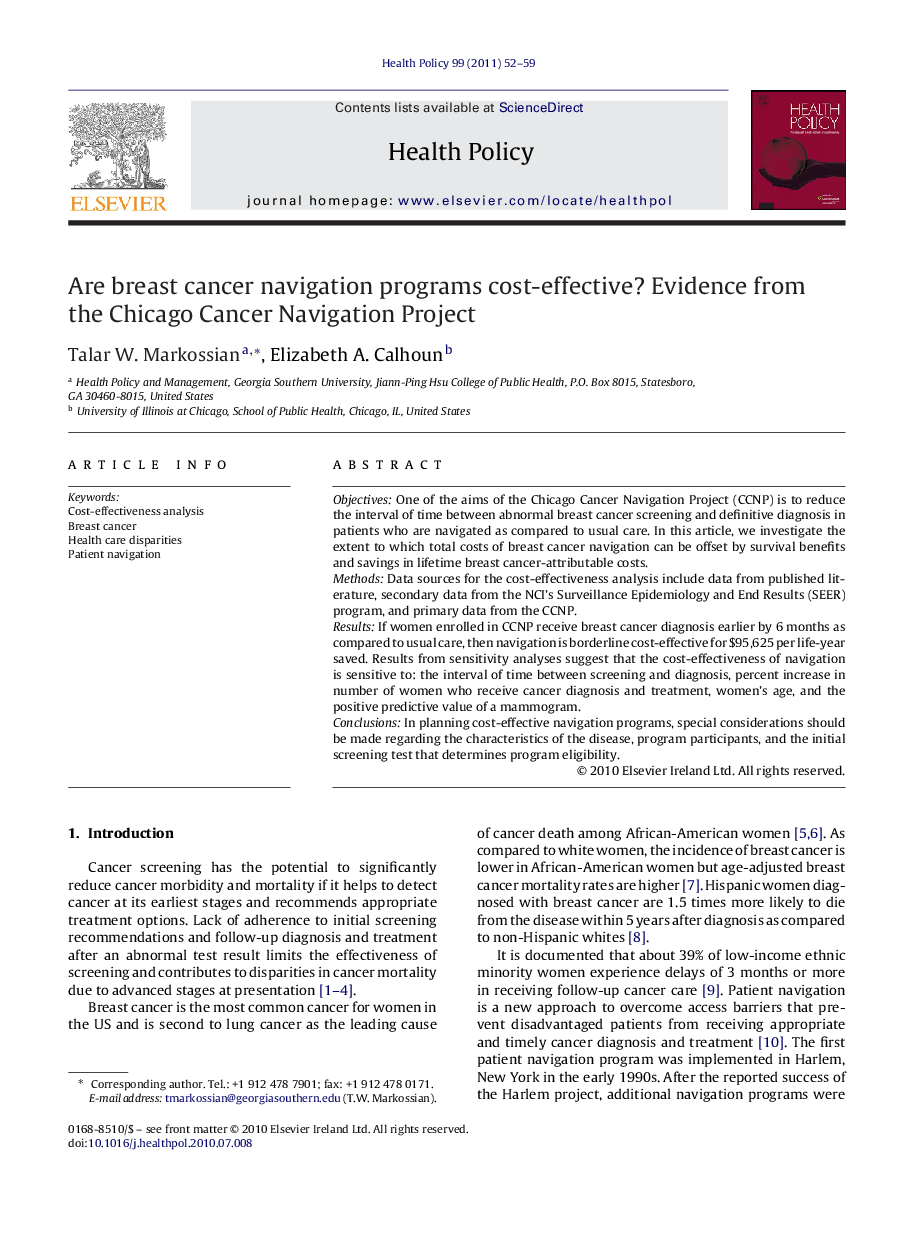| Article ID | Journal | Published Year | Pages | File Type |
|---|---|---|---|---|
| 4198186 | Health Policy | 2011 | 8 Pages |
ObjectivesOne of the aims of the Chicago Cancer Navigation Project (CCNP) is to reduce the interval of time between abnormal breast cancer screening and definitive diagnosis in patients who are navigated as compared to usual care. In this article, we investigate the extent to which total costs of breast cancer navigation can be offset by survival benefits and savings in lifetime breast cancer-attributable costs.MethodsData sources for the cost-effectiveness analysis include data from published literature, secondary data from the NCI's Surveillance Epidemiology and End Results (SEER) program, and primary data from the CCNP.ResultsIf women enrolled in CCNP receive breast cancer diagnosis earlier by 6 months as compared to usual care, then navigation is borderline cost-effective for $95,625 per life-year saved. Results from sensitivity analyses suggest that the cost-effectiveness of navigation is sensitive to: the interval of time between screening and diagnosis, percent increase in number of women who receive cancer diagnosis and treatment, women's age, and the positive predictive value of a mammogram.ConclusionsIn planning cost-effective navigation programs, special considerations should be made regarding the characteristics of the disease, program participants, and the initial screening test that determines program eligibility.
